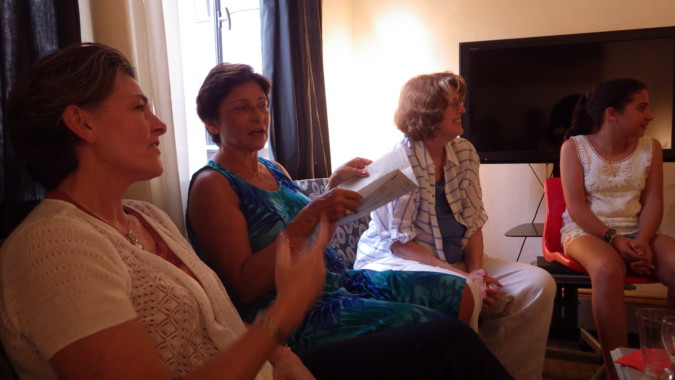The best thing about traveling to Greece with family who has family in the country is the ability to interact with their relatives; it gives me a better sense of what is really happening in their homeland. They, along with our wonderfully outspoken tour guide Lina, have been very vocal about the issues with the Greek economy, the high number of government workers (so high they don’t even really know the numbers on the rolls), and the sad fact that highly educated young Greeks are leaving the country for higher paying jobs in other European capitals and the U.S.
Conventional wisdom dictates that when you’ve dug yourself into a hole it is best to stop digging.
This brain drain is inevitable; a college grad with a master’s degree can’t live on 400€ per month (about $450). Jobs are scarce and highly competitive with 10,000 applicants for a single open slot. Unemployment is approaching 50% for these young people, and since we’ve been here an 80-year-old supermarket chain went out of business, putting 30,000 people out of work. Taxes are totally out of control, with the government unable to collect on the biggest abusers and only going after the common man, beginning a cycle of underreporting income (or not reporting it at all) and digging the hole even deeper.
How did they get here? According to the locals the money given to the government by the E.U. was never invested, but instead had been used to cause the aforementioned bloat in the number of government employees. Government worker is the most sought after job in Greece, and many of them became very rich. Early retirement in Greece was the norm, with a social security-like benefit or government pension available at 50, sometimes younger. When the economy fell apart austerity measures were imposed by the E.U. and caused the Greek government to reduce pensions by 40%, increase taxes ten fold, and impose a 3000€ annual luxury tax on automobiles, just to name a few of the tactics used by the government to pass the penalties along to the people. 1,000,000 people gave their license plates back to the Greek IRS. Gas is the equivalent of $8 per gallon (mostly tax) and there are vehicle tolls of 80€ for a round trip from Athens to Salonika, a trip of just over 300 miles. Public hospitals have few supplies, and we were told people being admitted would have to bring their own sheets, gauze, and toilet paper. In essence, the government passed all of the pain along to the people and not much has changed at the top. Conventional wisdom dictates that when you’ve dug yourself into a hole it is best to stop digging.
Thank the heavens for tourism. 23 million people will visit Greece between May and October this year, and is the only good news for the economy. Well, that and their olive oil exports. I worry for the state of their antiquities, museums and archeological excavations with the country’s finances in a shambles. Happily some of the work is funded and sponsored by international companies.
All of this being said, the locals, while certainly disgusted by their government and angry at being taxed, as Lina put it, “On the very air we breathe”, remain generous, funny, welcoming and warm. And Vic’s family, many of whom we met at a cocktail party and dinner at Vic and Jeanne’s apartment (and the conveniently located restaurant downstairs) exemplify these traits. Multi generations of bright well educated cousins in one room, with lots of talking and laughter and hugging and wonderful food. These people are their country’s future. There is hope for Greece.
Click on image to view full size











Leave A Comment